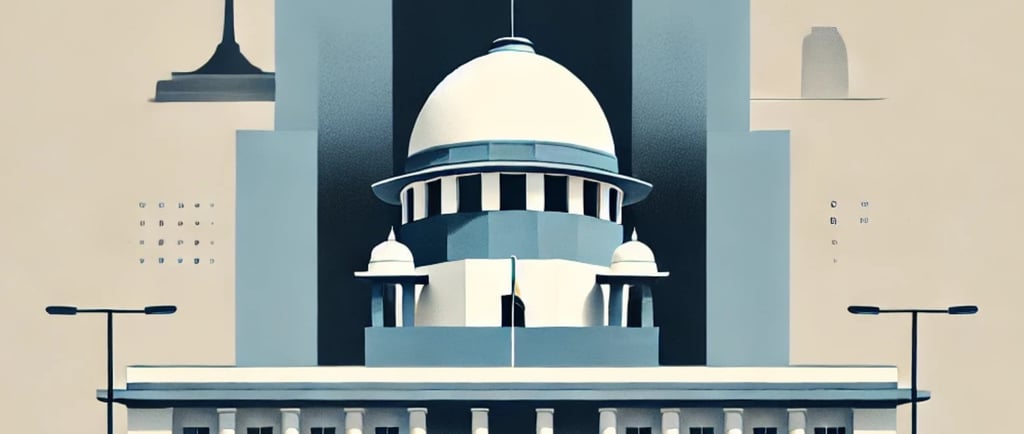Delhi High Court Rejects Petition Seeking Action Against NBCC and Shapoorji Pallonji.
Delhi High Court dismisses petition alleging corruption by NBCC and Shapoorji Pallonji in the Pragati Maidan ITPO redevelopment project. Justice Neena Bansal Krishna rejected the plea by Times Trading Corporation, citing a lack of specific details to substantiate the corruption allegations.
11/30/20242 min read


Website content
The redevelopment contract for the ITPO project was awarded to NBCC, which subsequently subcontracted the work to Shapoorji Pallonji. Shapoorji Pallonji issued tenders for the demolition of existing structures at the site and awarded contracts for demolition and material sales to multiple parties, including BS Enterprises. Following BS Enterprises' failure to fulfill its obligations, the contract was reassigned to the petitioner, Times Trading Corporation, in December 2017.
Times Trading alleged that after paying ₹4 crore for the contract, its workers encountered interference from Shapoorji Pallonji. It further claimed that part of its contractual work was reassigned to M/s Green Life Infrastructure Development Corporation in January 2018 for ₹1.8 crore, involving the resale of items covered under its original contract.
Subsequently, Times Trading filed complaints with the police and ITPO management, accusing Shapoorji Pallonji of fraud and misconduct. In March 2018, a settlement was reached, with Shapoorji agreeing to pay ₹6.02 crore, prompting Times Trading to withdraw its complaints.
Times Trading subsequently alleged that the settlement agreement was based on fraudulent representations and claimed that Shapoorji Pallonji failed to pay the agreed amount despite repeated follow-ups.
In response, Shapoorji Pallonji clarified that Times Trading's contract was limited to the sale of building materials and excluded the dismantling of the AC plant and other equipment, which were covered under a separate agreement. Shapoorji further alleged that Times Trading did not complete its assigned work on time, leading to delays at the project site.
The Court also rejected the petitioner's argument that a writ petition was applicable, given that the case involved a project undertaken by the Union of India.
The Court stated, “The mere involvement of the Union of India in the project does not make it a subject of a writ petition, as the dispute is solely between Respondent No. 7 (Shapoorji Pallonji) and the Petitioner, with no direct involvement of the Union of India."
Furthermore, the Court advised that if the petitioner believed the police were not taking appropriate action on its complaints of fraud and cheating, it should have approached a criminal court rather than filing a writ petition.
The Court stated, "The grievance regarding the non-registration of an FIR should be raised by the Petitioner before the appropriate Criminal Court. As the Petitioner failed to pursue the proper legal channels, it cannot directly seek directions from the Court under its writ jurisdiction."
Finding no grounds to invoke its writ jurisdiction under Article 226 of the Constitution, the Court consequently dismissed the writ petition.
